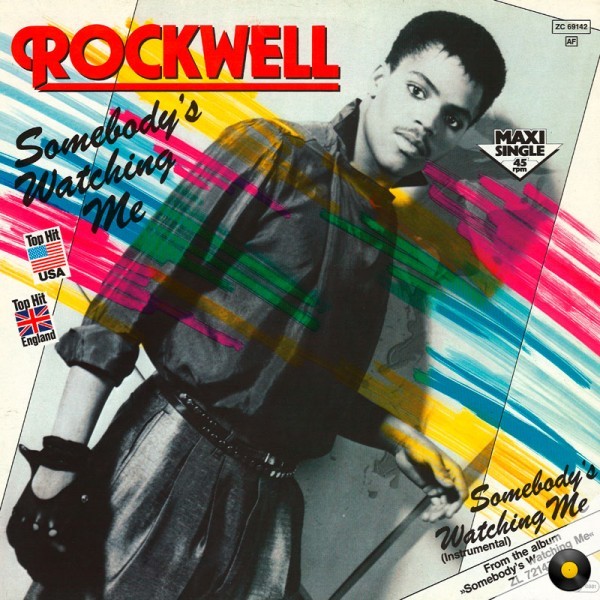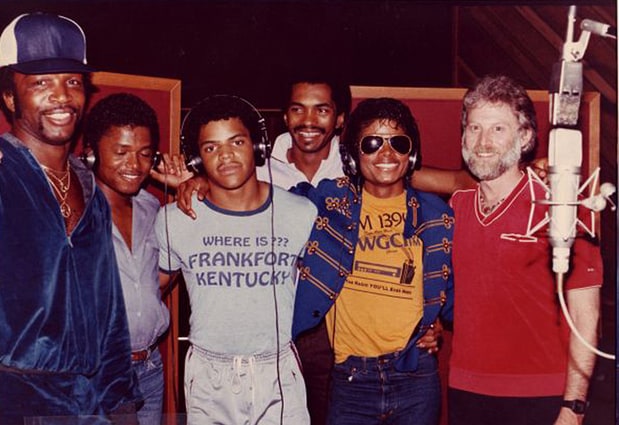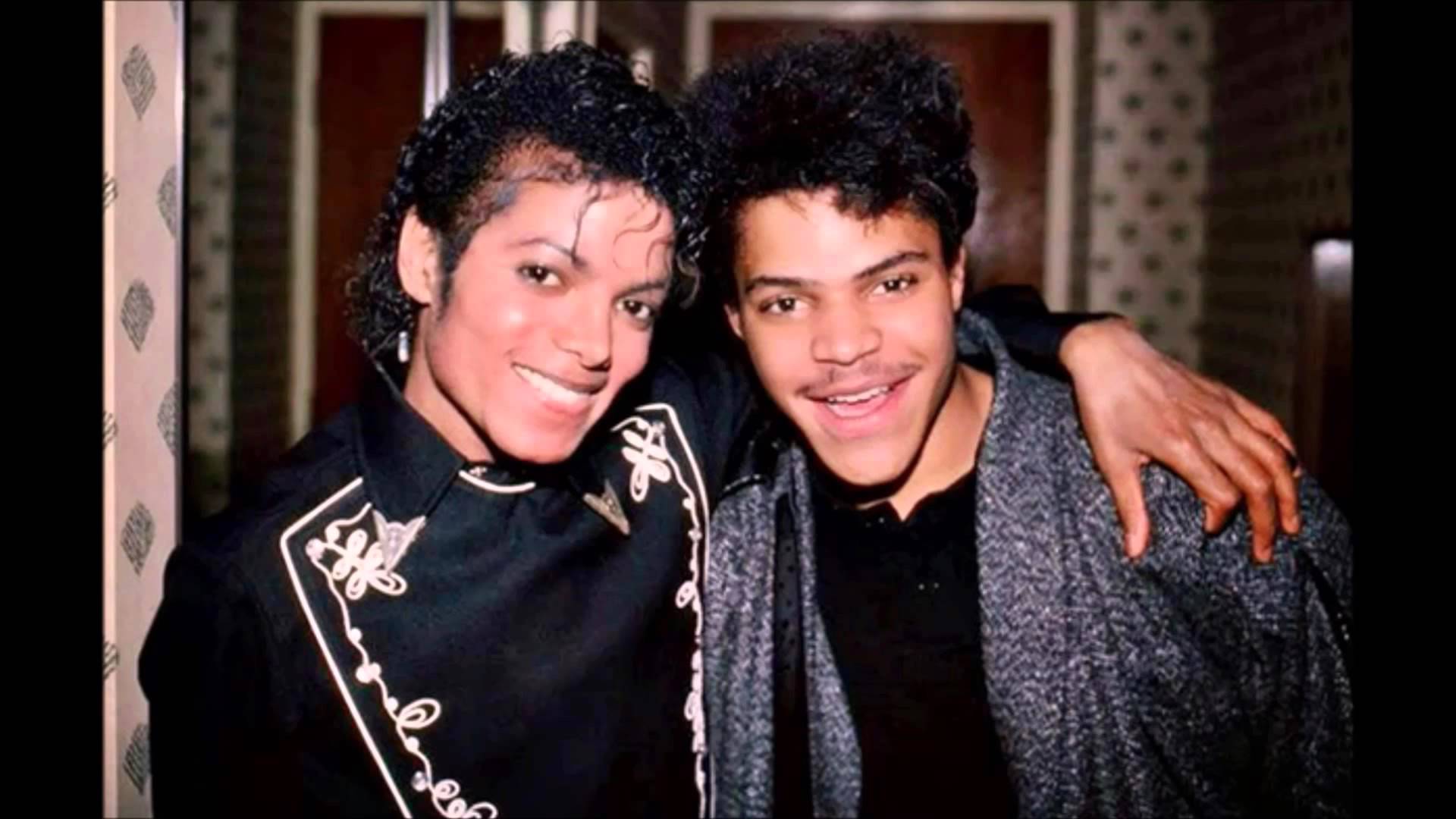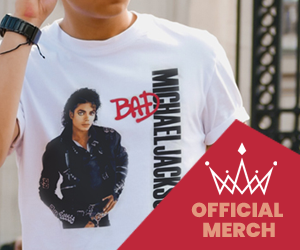
Berry Gordy was in his Los Angeles mansion in 1982 when his son, 18-year-old Kennedy William Gordy, brought the Motown Records founder a pop-funk demo he had created on a tiny 4-track recorder in his one-bedroom Hollywood apartment. Gordy, of course, had hundreds of Number One songs to his name – either as producer, songwriter or label head – so he knew a hit when he heard one. But after listening to his son’s demo, his reaction was less than exuberant.
“He said something like, ‘Yeah, yeah, that’s alright. That’s OK,'” Kennedy Gordy tells Rolling Stone. “‘Don’t give up your day job, young man. Keep writing and you’ll come up with something one day.’ I was devastated.”
One year later, Kennedy Gordy would take on the name Rockwell, enlist Michael Jackson and his brother Jermaine for background vocals and turn the song, now titled “Somebody’s Watching Me,” into an international and enduring smash hit that, more than 30 years later, remains the perennial paranoia-rock anthem and Halloween mix go-to song.
Becoming a songwriter when you’re the son of one of the music industry’s most influential record execs is both an audacious endeavor and, ostensibly, the easiest thing in the world. But when he submitted his demo to Motown Records, the then-unknown musician took a different route, opting against using his real name to avoid charges of nepotism.
“When he found out I was signed to Motown, he called me up one day and said, ‘How did you get signed? How does that happen? What happened?'” Rockwell recalls. “I said, ‘I don’t know. I guess they liked my music.’ He seemed like he was upset about it. I still, to this day, don’t know what his reservations were for me to be signed.”
Looking back on it now, Rockwell says he never considered using the Gordy name despite the doors it would open. “I never thought of it that way,” he says. “But I wanted it to be a family affair because Motown has always been a family. My father tried to teach us the love that the artists even had amongst themselves and his interactions with them. He was so busy with them that a lot of times he was not available for us as kids.”
Rockwell had written tracks before, but they were, as he put it, “mediocre at best.” He was frustrated. Angry. He dropped to his knees and decided, on a whim, to pray. “I asked God to give me it,” he says. “The prayer was, ‘God grant me the creativity to write a song that’ll go to the top of the charts and tickle the taste buds of the music connoisseur.’ Everything came to me so easily after that prayer.” Over the next two days, Rockwell sat down on his bedroom floor and began writing “Somebody’s Watching Me,” with most of the studio version recorded during the first take.

Inspiration came from both the past and the present. He’d think back to his days as a kid looking out of his bedroom window and “seeing his neighbor sticking his head out the window trying to look up in our apartment.” While writing the song, he lived with a girl who was the recipient of many pranks. “When she would take a shower, I would go up to the glass, wait until she was washing her hair and then press my face against the glass,” he says. “She would open her eyes, see my face and go, ‘Ahhhh!!!!'” (The prank inspired the lyrics “When I’m in the shower/I’m afraid to wash my hair/’Cause I might open my eyes/And find someone standing there.”)
Enlisting Jackson to sing the hook sounds like classic label maneuvering, a way to help out the unknown artist with a heavyweight co-sign. But the truth is more organic: Jackson was six years older than Rockwell, with the latter often spending his days as a kid at the Jacksons’ home. The fledgling songwriter went to the Jackson residence to show the family what he’d been recording. After bringing in a boombox with a demo cassette of the song, the nervous singer performed over the music.
“I performed it about eight or nine times,” he recalls. “Michael says, ‘Hey Rebbie! Hey Janet! You gotta hear this song Kennedy did.’ Every time we stopped the song, Michael called three more people down. Afterwards, Michael pulled me to the side and says, ‘Kennedy, I gotta talk to you for a second. Who are you going to get to sing background vocals?’ I said, ‘Why don’t you do it?’ It worked just like that.” Jermaine Jackson would also end up contributing to the final track. (Rockwell’s sister, Hazel, was married to Jermaine, further strengthening the bond between the two families.)
Rockwell wrote, co-produced and arranged nearly every aspect of “Somebody’s Watching Me.” As LMFAO’s Redfoo, Rockwell’s half-brother, told Rolling Stone in 2011, “He was working on his album at my dad’s house. My brother Terry and Rockwell were producing it, and I used to watch them play on the drum machine, and I always wanted a drum machine after seeing that.” When he finished the song, Rockwell prayed again. “I said to father God, ‘I will tell everyone about you,'” he says. “I will tell them how you did this for me and how it really happened.'”
“Somebody’s Watching Me” was released in January 1984 ahead of Rockwell’s debut album of the same name. The song, with its blend of New Wave, R&B and synth-pop (alongside Rockwell’s haughty fake British accent), entered the Billboard Hot 100 on January 28th, 1984 at number 73, where it would spend 19 weeks on the chart and peak at Number Two behind Kenny Loggins’ “Footloose.” It would eventually go gold, selling more than 500,000 copies three months after its release.
A batshit-crazy, haunted house-themed video helped make the song ubiquitous. The Francis Delia–directed clip raises more questions than answers: Why are there deranged-looking rabid animals mounted on the wall? What’s with the baby pig on a serving tray? Is it legal to keep a graveyard in your backyard? Why does Rockwell shower with shorts on?
“I had storyboards [for the director] and I thought he was paying attention to me,” says Rockwell, laughing. “I wanted it to be a little lighter. But when I went to the set to start shooting, it was all this dark stuff. There was blood and a tombstone with my name on it. He didn’t listen to anything I presented. I just had to go with it because we didn’t have time to switch it up.”
But even after the song’s release, with Jackson’s uncredited vocals the worst-kept secret in music, Motown decided not to promote Rockwell’s relationship to his father or Jackson’s appearance. To distance himself more from his familial connection, the singer would often affect a British accent on record and in interviews, jokingly claim to be from Portsmouth, England.
“I didn’t want anybody to know or people to take the credit away from me and say, ‘If it wasn’t because of Berry Gordy or Michael Jackson, you’d be nothing.’ I wanted people to think I was from some other country but I soon let that go because I didn’t want to be untruthful.”
The song’s success became an unlikely source of pride for Gordy after he rejected his son’s demo two years earlier. “I was with my father, my girlfriend and a couple of people [after the song blew up], and all of a sudden, ‘Somebody’s Watching Me’ comes on and my father goes, ‘Aw, man, you did it! You did it, man!’ He was so excited. That was a really great bonding moment for us. After that, he took me to some of his friends’ house and was like, ‘Well I’m sure you know my son Rockwell.’ [Laughs] He was parading me around.”
With “Somebody’s Watching Me” still a national hit, Motown rush-released the album’s follow-up single “Obscene Phone Caller,” a vintage 1980s synth-pop track that sounds like Michael Sembello’s “Maniac” mixed with every montage in a 1980s film. Its inspiration? “I always wanted women to just call me and be obscene phone callers,” Rockwell says, laughing. The track, as the title implies, plays into the same paranoia as “Somebody’s Watching Me,” yet nods more to upbeat pop than Rockwell’s more sinister-sounding breakthrough hit.
Despite its questionable lyrics (“If Alexander Bell were alive today/Would he want the telephone to be used this way?”), the song became a minor hit, spending 14 weeks on the Billboard Hot 100 and peaking at Number 35. The video, a quasi-sequel to “Somebody’s Watching Me,” opens with a hotel concierge telling a bemused Rockwell, “You had a lot of calls, but no one left a message,” before the singer skulks around a hotel looking for the titular caller. (Spoiler: Note the “bellboy’s” fake mustache.)
In 1985, one year after his debut album, Rockwell released his sophomore album Captured, with the equally paranoia-inducing single “Peeping Tom.” It failed to make a dent on the charts and, after releasing 1986’s underwhelming The Genie, Rockwell retired from the public eye as quickly as he came into it.
“I just needed to stop ’cause it wasn’t fun anymore. It became more of a job,” he says. “I needed more life experience. I needed to just be a regular guy, and that’s why I disappeared. I came from a king, Berry Gordy, and I’m like a prince. And I wanted to not be sheltered from average, everyday people and just wanted to live and learn.”
Since his heyday, Rockwell says he never stopped recording, albeit in private. Thirty years after his last album, the man once dubbed “The King of Paranoia Rock” is hoping to make a return to the spotlight with a new album appropriately titled The Second Coming. The album, Rockwell says, will blend pop, rock, hip-hop, R&B and country, but will ditch the voyeuristic themes of his past work.
“I always had the intention of coming back, and now I’ve learned all of those things and I have the wisdom of far more years, and I have something to say now,” he says. “I have unfinished business in the record industry. I’m coming back, y’all.”

SOURCE: RollingStone



